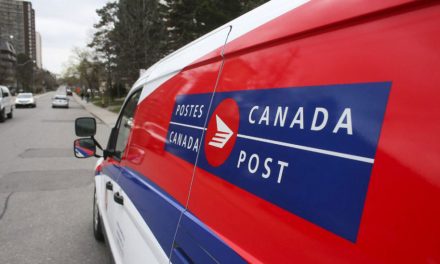
Canada Post tests copyright law over its address database
Canada Post is suing a small data products company over claims it has broken copyright law in making available a database of post codes. Ottawa-based Geolytica, Inc., says it “crowdsourced” information in its Canadian Postal Code Geocoded Database, which allows users to locate an address on an online map, a service offered for various websites to use via the Geocoder.ca site.
But Canada Post claims the company copied “substantial parts” from its copyright-protected CPC Database.
The lawsuit was filed last month in the Federal Court, with the Crown Corporation claiming that the Geocoder.ca website was causing it to lose out on sales of its own address dataset.
According to its filing, Canada Post now wants Geolytica to permanently delete its address database, pay damages and hand over any profits made from its database.
“Significant implications”
Geolytica is now being represented by the Canadian Internet Policy and Public Interest Clinic, an organisation set up by the University of Ottawa’s Faculty of Law in 2009.
The CIPPIC, which filed a statement of defense on Thursday, said the case raises “fundamental copyright issues” and will have “significant implications” for users of address databases.
It has filed a public interest plea, stating that post codes are “facts” that cannot be copyrighted, and that Canada Post has been claiming an “over-broad copyright”.
Geolytica was started by founder Ervin Ruci in 2004 as a project when he was a computer science graduate at Carleton University, as a service providing free address look-up services for non-profit organisations and a fee-based version for commercial users.
The service has since been expanded to offer various geocoding technologies.
The defense filing from CIPPIC states that address information within the Geocoder database was “independently created” over the course of several years, “without ever accessing or copying any database or postal codes of the Canada Post Corporation”.
“Crowdsourcing” refers to the process of recording user queries sent to its free street address lookup service in order to form the Geocoder database, as Geolytica claims.
The defense states that custom-developed software takes a user’s address query and locates a latitude and longitude for the street and street number, without using the post code. The software then associates the latitude and longitude with the post code given for the address to help expand the Geocoder database.
After years of building up this database, it is now able to look up locations based on post codes alone, the statement of defense claims.
Canada Post
Canada Post said on Friday that it would be “inappropriate” for it to comment on the specifics of an ongoing legal proceeding.
In a statement, the Corporation did not address the issue of whether or not Geolytica assembled its own database, or whether simply the act of making available a non-licensed list of Canadian addresses in itself contravened its copyright.
Canada Post simply stressed that it had taken “a lot of time and money” to get its own CPC Database right to “effectively deliver to Canadians and ensure mailers and shippers can trust the system”.
The Corporation argued that as a self-sustaining corporation it relied on revenues from its products and services, and said usage of its database had to be controlled partly so that the quality of the information being used by businesses was continually maintained.
“Just as other corporations would protect their brand, data, trademarks and intellectual property, we strive to do the same,” said Canada Post.









